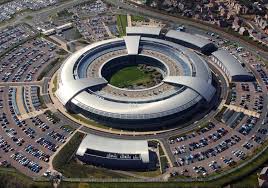BORED with driving to visit the relatives this weekend? You won’t be alone with more than 11 million hitting the road 0ver Easter – and 50 per cent of them leaving today.
Astonishingly, many of those crisscrossing the UK will actually travel further than the distance needed to visit to Major Tim Peake on the International Space Station.
A trip to Bude in Cornwall from London is 252 miles, while London to Whitby in North Yorkshire is 258 miles – both further than the 248 miles (400km) height at which the space station orbits.
Yet for those already bristling at the constant delays, inevitable road works and the grim fare offered by the nation’s motorway services – it may be of some cheer to let your passengers know it takes longer to cover the same distance in a rocket.
That isn’t because the Soyuz crew stop for a soggy panini in the mesosphere, or to account for avoiding the 2,271 satellites and half a million jagged pieces of space junk circling the earth.
Simply, while it took only nine minutes for Major Tim’s Soyuz rocket to arrive in orbit – the astronauts then have to spend another six hours on the earth’s ‘ring road’ as they synchronise their path and speed to dock perfectly with the ISS as its whizzes around the planet at 17,000 mph. (In Tim’s case it actually took 11 minutes longer because the automatic docking system failed and they had to do it manually)
Hard-pressed drivers may even feel a twinge of extra sympathy because, aside from wearily tracking those extra hours around the Earth Orbital, the final ‘are we there yet’ moment for travelling astronauts is that once they’ve eventually docked they still have to wait another two hours before the hatch is opened while all the final compression checks are run – which has to be up there with Dad forgetting the door keys for upping the frustration levels. That makes a total of eight hours and 11 minutes from lift-off to door.
Suffice to say children, for all those encaged on the M1, M6, or A303 or M25, it would take you longer if you were in a space suit – and you definitely wouldn’t get to stop for those Haribo Tangfastics.
One other small thing to consider – just in case you choose to convert to the rocket-powered flying car this Easter. Don’t set off in a hurry. The next closest time the space station will be to the UK is 3:16am tomorrow (Friday) morning.



